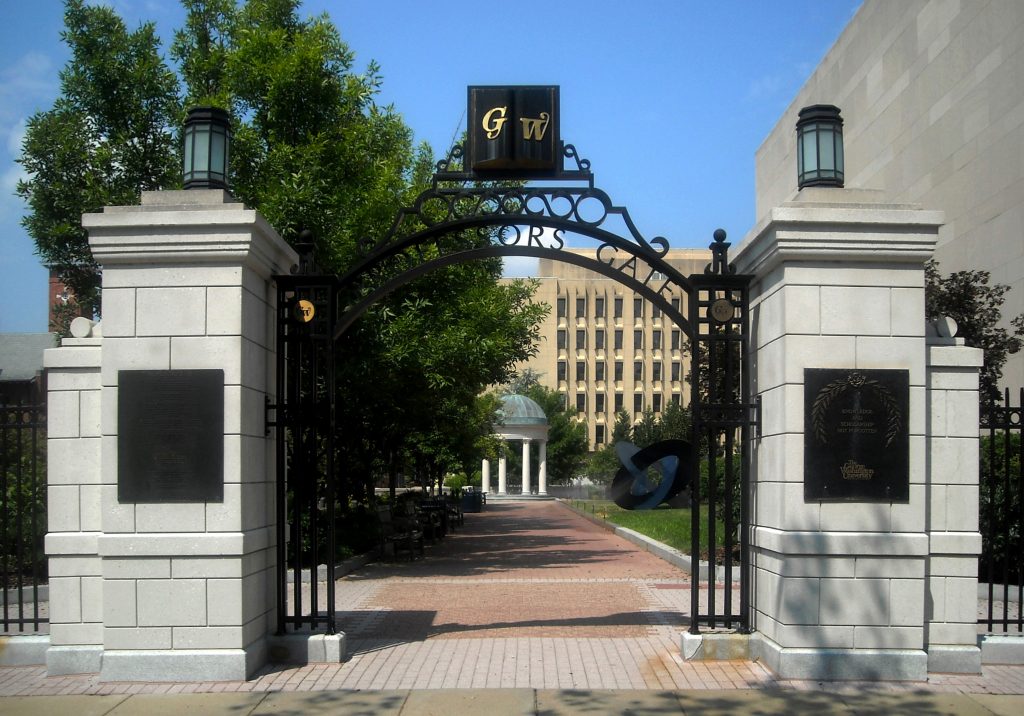The George Washington University’s School of Engineering and Applied Sciences (SEAS) will offer an online Master of Engineering in Cybersecurity Policy and Compliance M.Eng.(CPC) with its first term starting this fall. Given the rise in cybercrime and instances of global corporate espionage, this program fills an urgent staffing demand by educating students with a specific skillset that employers are seeking in managerial-level information assurance personnel: namely, the ability to detect potential vulnerabilities, develop and guide proposed solutions and policies, and ultimately mitigate risk.
The program is developed and taught by established experts in cybersecurity, including published authors, award-winning teachers, and recognized leaders at corporations such as IBM, CellTrust, and MITRE.

The goal of the M.Eng.(CPC) is to prepare students to implement appropriate forensic analyses of cyber incidents and use predictive analytics modeling to forecast attacks. Graduates will be able to devise solutions that go beyond traditional IT practices to delineate precise and actionable cyber intelligence. They will be able to formulate short- and long-term cybersecurity strategies and policies for their enterprises while adhering to compliance laws. Students will also learn how to implement methods of mitigating risk by managing threat vulnerabilities and exploits, as well as how to design mobility solutions that integrate mobile device management and industry best practices.
The Cyber Security Masters online program is designed to accommodate working professionals and requires 30 credit hours of coursework to complete. Students taking two courses per term can finish the program in 2.5 years. The live lectures are recorded. Other coursework can be completed as it suits a student’s schedule, minding assignment deadlines. All required books and software for the program are included in the cost of tuition, which is competitively priced at $1,075 per credit hour*.
Housed in the SEAS, the foundation of the program’s curriculum is engineering-focused but multidisciplinary. It consists of four computer science courses and six others focusing on policy, management, compliance and risk management. While many graduate programs in cybersecurity focus heavily on coding or high-level policy, GW’s program distinguishes itself with coursework that balances policy studies and technical skills, building knowledge of security systems, algorithms, and software paradigms. Although an overview of cryptography is included in the coursework, prospective students are not required to have extensive coding knowledge to apply.
“This academic track is a great fit for students who want to learn to identify critical holes in an organization’s systems and propose and manage the implementation of actionable solutions, rather than learning to code the entire solution themselves,” says Shahram Sarkani, Ph.D. and Director of the School of Engineering Off-Campus and Online Programs.
GW will partner with All Campus for marketing and enrollment support services to bolster the program’s launch and its evolution. “We have highly enjoyed working with George Washington to scale their online graduate programs in engineering as they are all smartly designed to address real world market needs, and we look forward to an even stronger future with the new online cybersecurity program,” says Joe Diamond, CEO of All Campus.
GW has one of the largest online systems engineering graduate programs in the country, which includes the online M.S. in Engineering Management and online M.S. in Systems Engineering. The university’s commitment to developing quality curriculum and providing dedicated faculty to teach it makes GW a leading distance learning provider in the engineering discipline.
About the School of Engineering and Applied Sciences

The School of Engineering and Applied Sciences (SEAS) at the George Washington University has been bringing together great minds in industry and government since the 1800s. Throughout time, it has evolved to help professionals meet the technological challenges of the day. The School’s goal is to stimulate and promote innovative fundamental and applied research activities in order to contribute to a global body of knowledge.
